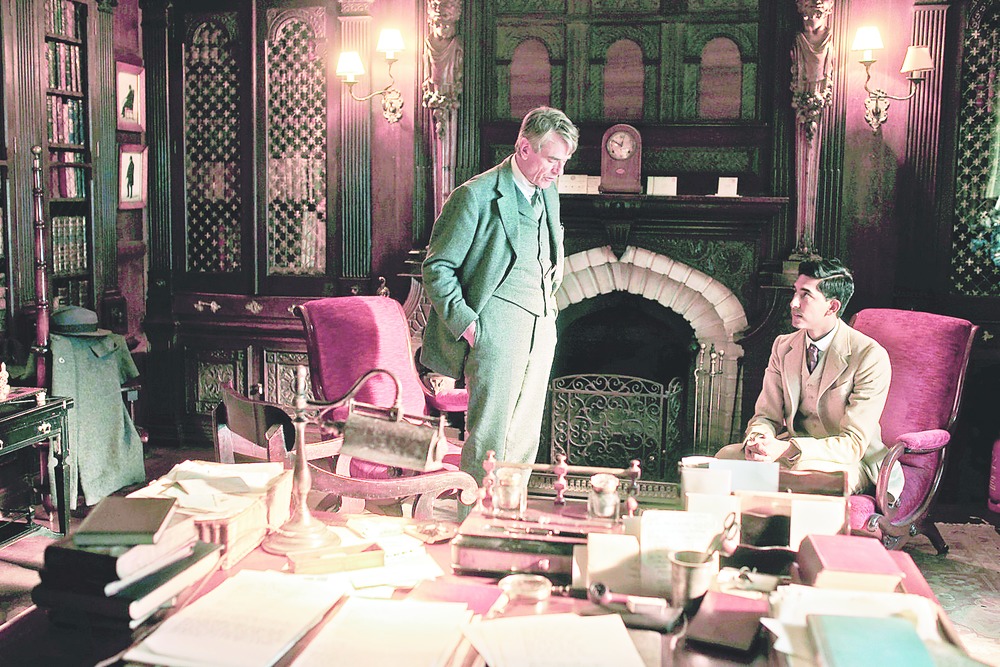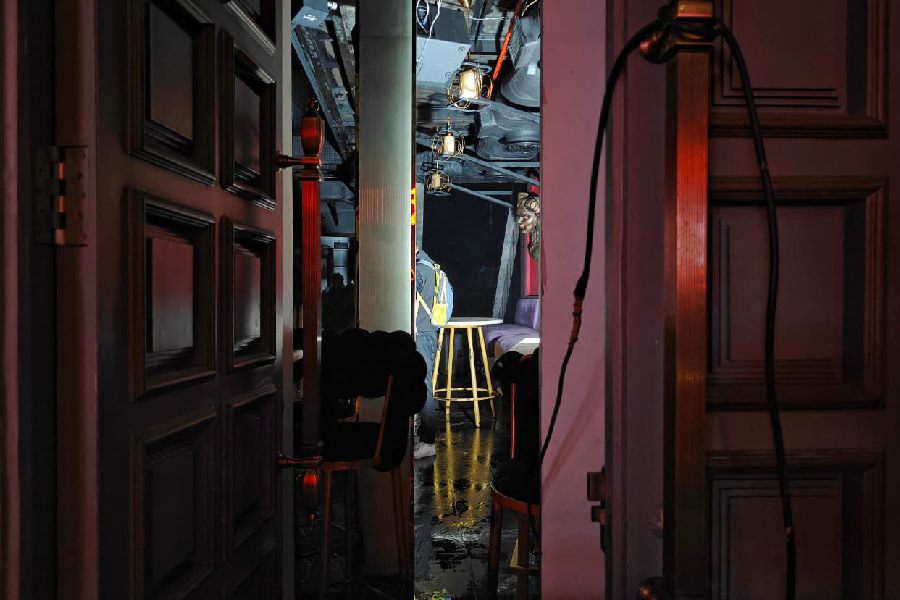
Cambridge, April 7: A film on the life of the Indian mathematical genius, Srinivasa Ramanujan, called The Man Who Knew Infinity, goes on general release tomorrow in the UK, with professor Venkatraman "Venki" Ramakrishnan, Nobel laureate and president of the Royal Society, passionately championing its cause.
The film, based on the biography of the same name by Robert Kanigel, stars Dev Patel, of Slumdog Millionaire fame, as Ramanujan and Jeremy Irons as G.H. Hardy, the English mathematician who brought the largely untutored Indian over from Madras and collaborated with him at Trinity College, Cambridge.
Venki has become president of the Royal Society nearly a hundred years after Ramanujan was elected a Fellow of the world's most prestigious scientific body although many of the leading lights of the time were initially loath to let in a "blackie".

It was much the same story at Trinity where Venki is today a much respected Fellow as is Amartya Sen, its first Indian Master, though a century ago, attempts by Hardy to put Ramanujan up for a fellowship were initially rebuffed because of strong anti-Indian and racist sentiment.
When permission was sought to film on location in Trinity, the current Master, Gregory Winter, and other members of the governing college council had no hesitation in green-lighting the project.
After a screening of the movie in London at the Vue Cinema in Regent Street yesterday, Venki hosted a reception at the headquarters of the Royal Society in Carlton House Terrace where he joked about the twists and turns of history.

"In the movie, it says: 'How can you possibly think of electing Ramanujan to the Royal Society - I mean the fellow is Indian' - and here a hundred years later, I feel slightly odd I am here representing the Royal Society in welcoming you," quipped Venki, whose portrait will go up soon on the walls of the Royal Society.
An Indian in the audience joked: "I recognise Venki but who is the man in the portrait with the distinctly dodgy hairstyle?"
Sir Isaac Newton would perhaps not appreciate such a comment. In the film, a don tells Ramanujan as he enters college for the first time that an apple hit Newton on the head, as a result of which he discovered gravity.
Later, when things seem to be going wrong for the lonely Ramanujan, he wanders into a chapel and seeks solace by touching Newton's feet in a very guru-shishya Indian touch.
Ramanujan suffers a great deal of racist abuse and, at one point, is pushed to the ground and kicked badly by a group of young men who accuse him of leading a parasitic life at Trinity while they are going to war in 1914.
But this is counterbalanced by the strong support given to him by Hardy and, in the end, even the doubting dons are won over by Ramanujan's sheer brilliance.
Ramanujan was born at Erode in Madras Presidency (now Tamil Nadu) in a Tamil Brahmin family of the Thenkalai Iyengar sect on December 22, 1887. He died, aged 32, from TB a year after returning from Cambridge, on April 26, 1920. He was elected a Fellow of the Royal Society in 1918, after which Trinity too could no longer deny him a fellowship.

Venki, also born in Tamil Nadu, in Chidambaram, in 1952, introduced the screenings of the movie in London and Cambridge.
"While growing up, every child who grows up in India knows about Ramanujan in the same way that every British child knows about Darwin or Newton," he began.
"When I became president of the Royal Society, I realised with some pleasure that I would be the president in the 100th year - the centenary of his election to the Royal Society - and I thought something ought to be done about that. I contacted a mathematician at Trinity College where I am also a Fellow - and he put me in touch with Ken Ono, and Ken Ono is the (American) mathematician who is the consultant for this movie. And very soon this idea that the Royal Society and Trinity College collaborate with Warner Brothers to bring about events both in London and Cambridge came about.
He continued: "You are about to see a movie that is rather romantic in a sense - it is about a self-taught genius who is on the verge of starvation, living in poverty, who takes this unusual step and makes a connection with one of the most famous mathematicians in the world who happened to be in Trinity College, Cambridge, at the time.
"And the very fact that they would connect is such an unlikely story that if we had invented it, it would have been thought implausible. But it actually happened.
"You will see some things about the prejudice of society at large but you have to remember that there were (also) people who transcended the prejudices of their time and reached out.
"It is a lesson to all of us that we don't know where genius can spring from and so we should keep our minds open about where they are from or what ethnic group they belong to, and all of those things and keep our eyes and our hearts open to acknowledge talent."
Venki said the Royal Society, founded in 1660, "elected its first Indian Fellow in 1841 - he was a shipbuilder and engineer, Ardaseer Cursetjee - but that was in the days when elections were done by people nominating anyone they thought was worthy".
"It wasn't until 77 years later in 1918 that they elected Ramanujan - he was the second Fellow from India to be elected but he was the first to be elected in the modern way by critical examination of whether he had done ground-breaking work or not," he said.
"And after Ramanujan there was a whole series of people from India who were recognised by the Royal Society. And it really initiated links between the Royal Society and India that continue to this day."
Venki explained: "Interestingly, in 1918, Trinity College also elected him to a Fellowship - he was the first Indian to be elected a Fellow of Trinity College or possibly of any Oxbridge College that I know. So, I would say that given the time and era, both Trinity College and the Royal Society should be extremely proud of how they transcended the norms of their time and recognised this talent which emerged from India."











